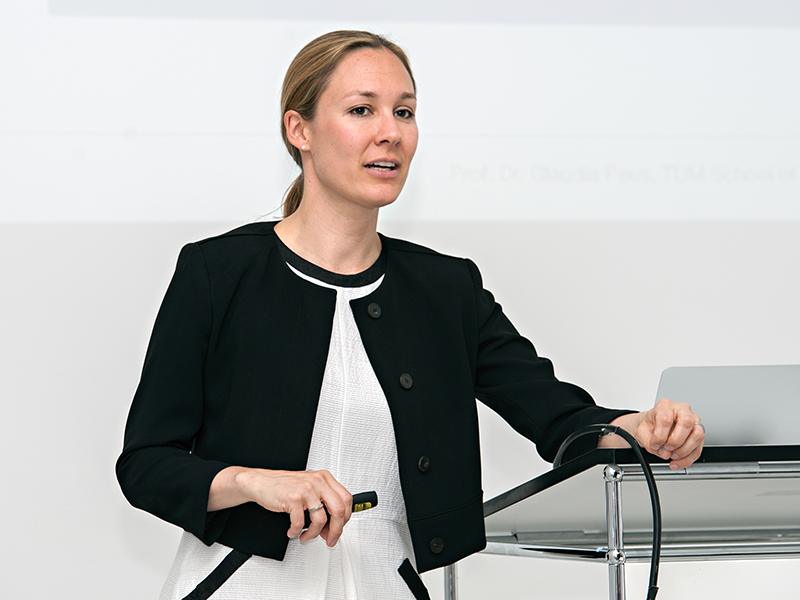Interview with Prof. Claudia Peus on digitalization and lifelong learning
“Business schools should help shape the societal dialog”

Professor Peus, you just completed two days of intensive exchange on digitalization with the deans of leading business schools. How digital is teaching today?
The conference illustrated the fact that the majority of the business schools are only now beginning to implement digital methodologies. TUM is a frontrunner in managerial development with its "Digital Leadership Development" approach: The integration of online learning formats in certification programs which have traditionally been conducted as training sessions requiring physical attendance promotes flexibility in terms of both time and location. It also facilitates the integration of managers from around the world. Apps can support learning in everyday work activities, promoting the convergence of formal training and informal learning.
What other target groups do you see in addition to managers?
Digitalization has already changed the working world at a fundamental level. First of all we have to of course prepare our students for this fact, but the employees of external organizations will need preparation as well. The progress of digitalization will mean that jobs will change constantly. This means lifelong learning will be an absolute necessity in the working world of the future. Here in particular digital forms of learning and continuing education offer individualized solutions for the ongoing further education of target groups of all types and at all levels of professional experience and development.
This of course means target groups with very different requirements and prerequisites …
Digital technologies in particular allow increased adaptability of teaching and continuing education methods to match the respective target group, and even the individual learner. For example, continuous recording of learning progress and personalized feedback can reinforce individual acquisition of skills. Experience-based learning can also be systematically integrated, for example in virtual reality where actual experience can be gained in a safe learning environment.
Not all aspects of digitalization are being received positively. There are worries, in particular with regard to professional life...
Of course there are worries. All the conference participants agreed that academic institutions in general and business schools in particular are faced with a major societal responsibility: They are expected to actively help shape the current societal dialog on digitalization and at the same time are to produce effective and responsible management. This requires innovation, which can be characterized as follows, in the words of Peter Drucker: “Innovation, rather than being an assertion of human power, is an acceptance of human responsibility”.
Additional inFormation:
- Prof. Dr. Claudia Peus is TUM Senior Vice President - Talent Management and Diversity and Vice Dean of Executive Education at the TUM School of Management. Her research concentrates on the topics of management and managerial development, science management and international HR management.
- The European Foundation for Management Development (EFMD) is a non-profit foundation headquartered in Brussels. As an international accreditation and certification authority it awards among other things the renowned EQUIS Seal, which the TUM School of Management received in 2017. Together with two other accreditations, EQUIS makes up what is known as the "Triple Crown" – a seal of quality earned as yet by only approximately 70 business schools worldwide. Since last year the TUM School of Management has also been one of only three institutions in Germany to belong to this illustrious circle.